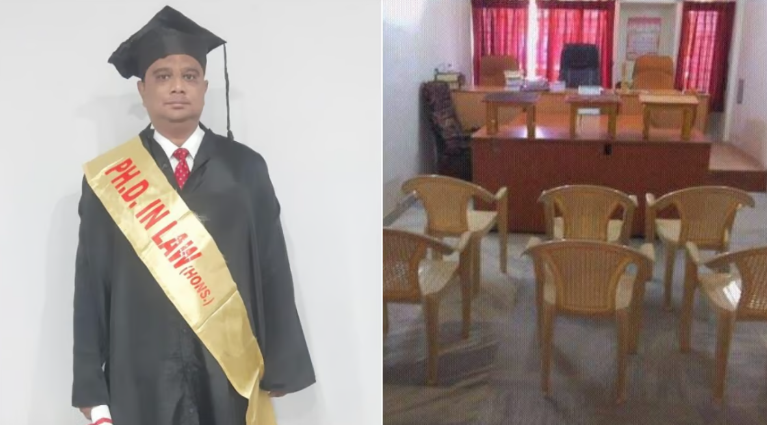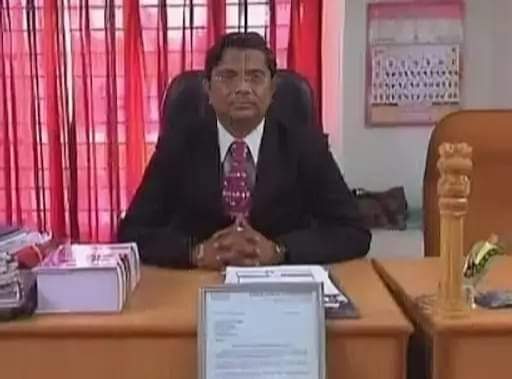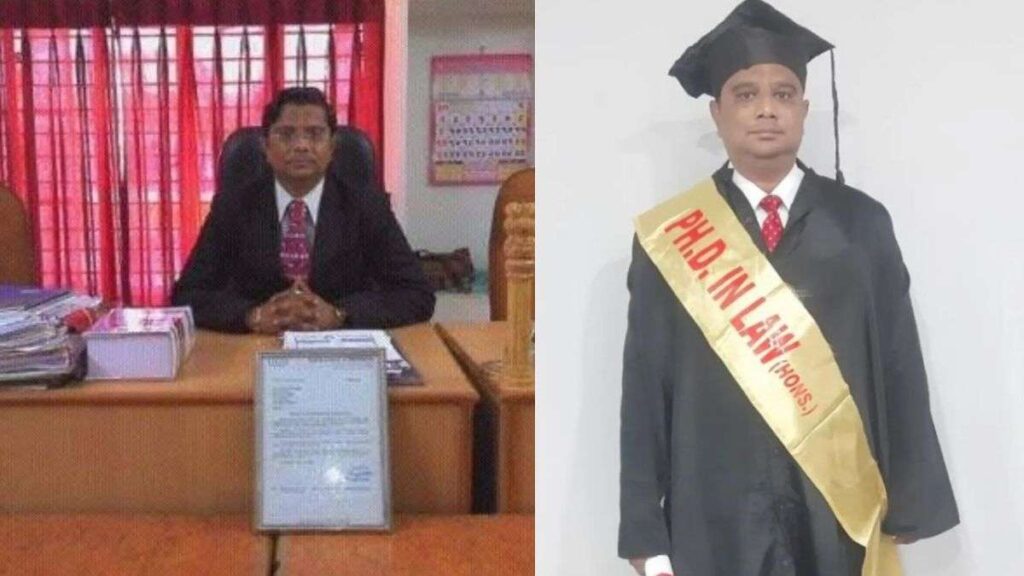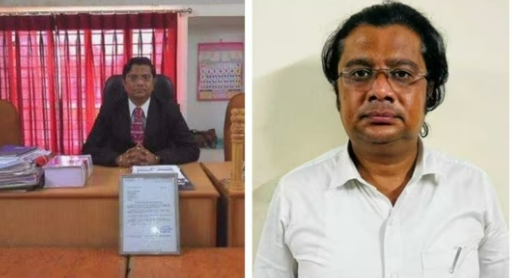In a bizarre and audacious scam, a man in Gujarat named Morris Samuel Christian has been accused of impersonating a judge and operating a sham court for over five years, deceiving dozens with promises of legal resolution in complex land disputes. Since 2019, Christian allegedly presented himself as an “official arbitrator,” holding fake court sessions in a staged courtroom that duped clients into believing they were part of genuine legal proceedings. Here’s how the deception unfolded and what’s next in this unfolding legal drama.
Fake Courtroom, Real Deception
Christian’s setup wasn’t just convincing; it was meticulously crafted to mimic a legitimate tribunal. Police say he ran a mock courtroom complete with props, associates playing the roles of court personnel, and stacks of official-looking paperwork. Through this elaborate ruse, Christian allegedly lured individuals grappling with land disputes, assuring them that his “court” would expedite their cases in exchange for high fees. His clients, many facing lengthy legal struggles, fell for his promises of swift justice.

According to a police report, Christian’s claims extended to falsely presenting himself as a government-appointed arbitrator under the Arbitration and Conciliation Act. In one particularly shocking instance, Christian passed an order in favor of a client, ordering the district collector to update land records in Gandhinagar’s Paldi area to reflect his client’s ownership—a decision with no legal standing but compelling enough to pass muster with some officials initially.
How the Scheme Operated
Christian’s methods were brazen yet simple. Police allege he fabricated orders and conducted mock trials, often filing these fraudulent documents with real courts. He claimed to be an arbitrator with the authority to handle land disputes and other civil cases, convincing clients they were involved in an official legal process.
In one case, after issuing a forged order, Christian filed an appeal in the civil court to add his client’s name to government land records, attaching his fake “court order” to legitimize the request. The scam started unraveling when a registrar at the city civil court, Hardik Desai, noticed discrepancies. Further investigation revealed that Christian had no legal authority, exposing his fake courtroom as a fraud.
Police Step In
The scheme’s exposure led to swift police action, with the Karanj police station registering an FIR against Christian under the Indian Penal Code’s Sections 170 (personation as a public servant) and 419 (cheating by impersonation). The release from the Gandhinagar police confirmed Christian’s arrest, detailing his alleged history of exploiting vulnerable individuals seeking legal resolution.

This isn’t Christian’s first brush with the law. In fact, he’s already facing separate complaints of cheating, dating back to a 2015 case in Maninagar. The police are now digging into the full scope of his operations to determine just how many individuals were duped and how much money was involved.
A Deeper Look into Christian’s Network
Law enforcement authorities are expanding their probe to determine whether Christian acted alone or was part of a larger network. His associates, who played roles as court staff, are also under investigation for their involvement in the scam. “It’s a betrayal of trust on an extraordinary scale,” said one official involved in the investigation, noting that Christian’s “court” exploited a legal loophole in a bid to avoid detection.

Unmasking the Deception
The exposure of Christian’s fake court serves as a chilling reminder of how fraud can infiltrate even the most trusted institutions. By preying on the vulnerable and exploiting bureaucratic loopholes, Christian’s scheme highlights a need for vigilance in legal processes and a call for better safeguards against impersonation.
As the investigation continues, those impacted by Christian’s deceit are now left picking up the pieces of their legal disputes, with many hoping for a genuine resolution in court.

